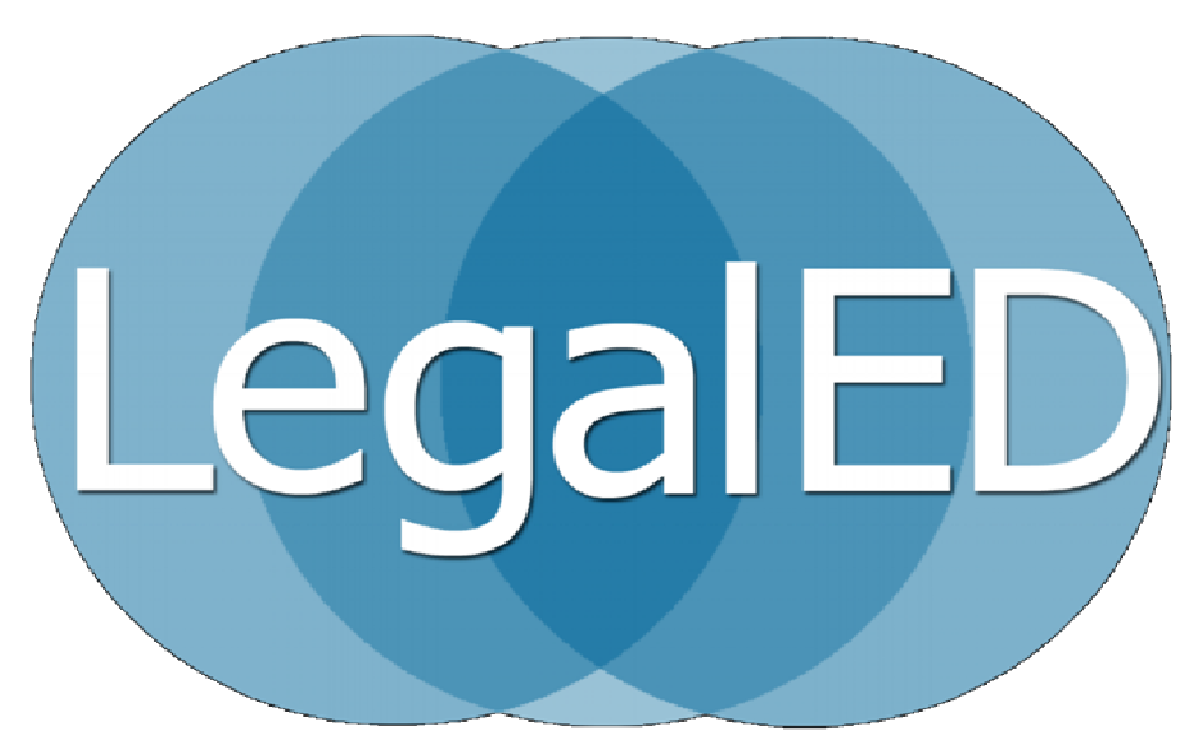ILT 2015
Using Technological Tools for Legal Education
Featuring: Mark A. Edwards, Audrey Fried, Matthew J Homewood, Sydney Beckman, Sarah Glassmeyer
Mark A. Edwards
Talk Title: Using Content-Embedded Concept Maps as Casebook Replacements
Talk Summary: What if I told you there was a replacement available for the casebook that is pedagogically superior, more comprehensive, more flexible, more accessible, and much, much, much less expensive for our students? Well, I am going to . . . and I am going to demonstrate it, too.
Mark A. Edwards is a Professor at William Mitchell College of Law in St. Paul, MN. He is an innovator in the development of interactive concept maps to improve law student learning. He writes about “acceptable deviance” around the law -- think of driving 73 mph in 65 mph zone -- and its effect on both the evolution of law and enforcement practices, primarily in criminal and property law. Professor Edwards was voted Professor of the Year for 2007-2008, 2010-2011, and 2013-2014 by the William Mitchell student body.
Audrey Fried
Talk Title: How to Use Online Discussion to Ignite Law Teaching
Talk Summary: Online discussion is a powerful pedagogical tool that is particularly suited to legal education. In this talk, I’ll discuss how online discussion can be blended with in-person law teaching—and why it should be.
Audrey Fried practiced complex commercial litigation after graduating from the University of Chicago Law School. She is currently a graduate student at the Ontario Institute for Studies in Education at the University of Toronto where her research interests include social aspects of learning and educational technology.
Sydney Beckman
Talk Title: Five Tips for Using Interactive Technology to Comply with ABA Standard 314
Talk Summary:
New ABA Standard 314 requires schools to "utilize both formative and summative assessment methods in its curriculum to measure and improve student learning and provide meaningful feedback to students." This presentation will briefly illustrate how an interactive technological solution can readily be used int he classroom as a tool to help comply with this standard, particularly with assessment.
An experienced trial lawyer with a passion for teaching, Sydney A. Beckman is Professor of Law at the Lincoln Memorial University Duncan School of Law. Previously, he taught at the Charleston School of Law and was an adjunct professor at Texas Wesleyan University School of Law. He regularly gives presentations on using interactive technology in the classroom. He has authored dozens of articles and numerous books. His interests include evidence, technology and the law, and domestic relations.
Matthew J. Homewood
Talk Title: Mobile Devices in the Classrooms: Recognizing the Challenges, Embracing the Opportunities
Talk Summary: The typical law class, both in the UK and the rest of the world, looks very different to how it did just 10 years ago. Today it can be said with some certainty that the one thing nearly all students will bring to class is some form of electronic device, be it a smartphone, a tablet or a laptop. Such technology can be a distraction to some students and indeed professors and if not used in the right way, can be an obstacle to the learning processes and the development of key legal skills. However, it is submitted that if professors and curriculum designers embrace the opportunities provided by technology in the classroom, classes are enriched, student engagement increases, deeper learning can be achieved and positive outcomes can be realized. Furthermore, real time efficiencies can be achieved for the busy academic.
Matthew J. Homewood is Principal Lecturer in European Union Law and Learning and Teaching Coordinator at Nottingham Law School, Nottingham Trent University, England. Matthew has a growing reputation in both legal education and education generally as an expert in the use of educational technology and the impact that such technologies can have on student engagement and outcomes. He currently holds two high profile national edtech awards - The Association of Law Teachers Teaching Law with Technology Prize 2014 and a Highly Commended ALT Learning Technologist of the Year Award 2014. Matthew was also awarded the inaugural NLS Law Tutor of the Year 2014.
Sarah Glassmeyer
Talk Title: OMG: What’s with all the Os?
Talk Summary:
As a law professor, you’ve perhaps heard the terms OA or OER. Or maybe the words Open Source or Open Law. What are they and how do they relate to legal education? Sarah Glassmeyer, former academic law librarian and current Director of Community Development at CALI will explain all!
Sarah Glassmeyer is the Director of Community Development for the Center for Computer Assisted Legal Instruction (CALI), a non-profit consortium of law schools, legal education programs and law libraries from around the globe. CALI provides technological solutions for improving legal education, publishes open access legal publications and creates tools for increasing access to justice. Prior to CALI, Sarah was an academic law librarian for six years. She’s passionate about open access, open law and technology and blogs about the intersection of all of them at sarahglassmeyer.com.





